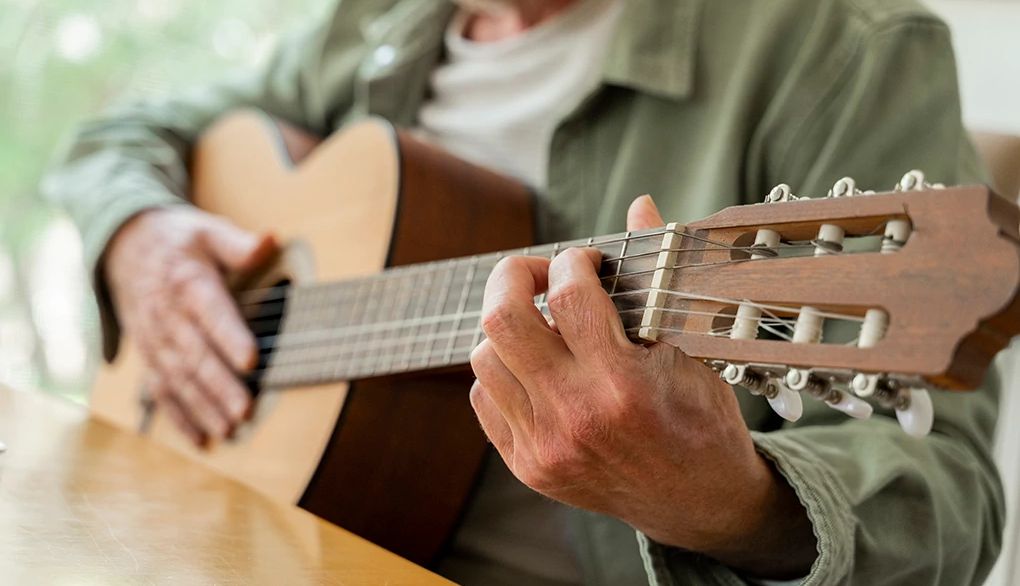Challenges


Roy Ernst remembers the first few times he conducted an orchestra full of novice adult musicians.
“When we played a piece that was recognizable, people were like, ‘Oh, my goodness, they are really good,’ ” says Ernst, a professor emeritus of music education at the University of Rochester in New York. “One advantage we had,” he joked, “was that expectations were so low.”
It’s not just audience members who are skeptical when adult beginners take the stage. Would-be singers and musicians often face their own doubts.
“We often think about people participating in music only if they’ve done it earlier in life,” says Julene Johnson, a cognitive neuroscientist at the Institute for Health & Aging at the University of California, San Francisco. “It’s a little bit of myth that people later in life can’t do it.”
Not only can we do it, we probably should do it: Making music is a good brain-stimulating activity at any age, according to a 2020 report on music and the brain from AARP’s Global Council on Brain Health (GCBH).
“We now have a number of studies suggesting that engaging in music late in life is not only good for your brain but good for your social and emotional well-being,” says Johnson, who was among the experts who wrote the report.
In a study led by Johnson, older adults — many with no musical experience — joined choirs at senior centers. After six months, the singers felt less lonely and more engaged in life, according to results published in The Journals of Gerontology: Series B in 2018. Another study, published by Johnson and colleagues in PLOS One in 2021, found choir singers age 60 and older showed more verbal flexibility than their non-singing peers.
Older adults who learn to play the piano or other instruments also seem to get brain benefits. In a study of 30 people who learned to play a handheld keyboard called a melodica and 30 who did not, those who played improved their verbal memories in just 10 weeks. That study was published in Frontiers in Aging Neuroscience in 2023.













More From Staying Sharp
Still Can’t Sleep? This Treatment May Help
A form of behavioral therapy may get you more (and better) shut-eye
Dementia: Potential Warning Signs
Know when to worry and when it's normal aging, then take informed action
Find Serenity in Gardens or Arboretums
Discover how visiting a garden can calm your mind and refresh your spirit